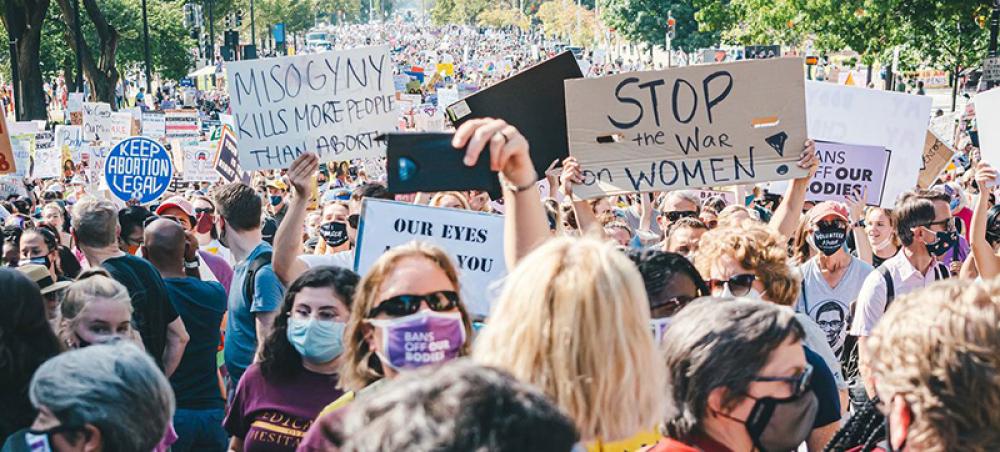Just Earth News | @justearthnews | 03 Jun 2023

Image: © Unsplash/Gayatri Malhotra
New York: Millions of women and girls across the United States have suffered an alarming deterioration in access to sexual and reproductive healthcare, following the US Supreme Court decision overturning the constitutional right to abortion in June 2022, UN-appointed independent rights experts said on Friday.
Since the start of the year, abortion has been banned in 14 states across the country, and the consequences of the Supreme Court decision has reverberated throughout the entire legal and policy system, the Human Rights Council-appointed experts said.
“The regressive position taken by the US Supreme Court...by essentially dismantling 50 years of precedent protecting the right to abortion in the country, puts millions of women and girls at serious risk,” they said. They added that violations of International Human Rights Law had resulted from the landmark decision, which overturned the 1973 Roe vs Wade decision - in effect, returning abortion law to state legislatures.
Largely inaccessible
The bans have made abortion services largely inaccessible and denied women and girls their fundamental human rights to comprehensive healthcare including sexual and reproductive health, the experts maintained, adding they could lead to violations of women’s rights to privacy, bodily integrity and autonomy, freedom of expression, freedom of thought, conscience, religion or belief, equality and non-discrimination, and freedom from torture and cruel, inhuman and degrading treatment and gender-based violence.
Disproportionate impact
“Women and girls in disadvantaged situations are disproportionately affected by these bans,” the experts said. They referred to women and girls from marginalised communities, racial and ethnic minorities, migrants, women and girls with disabilities, or living on low incomes, in abusive relationships or in rural areas.
The experts said that existing exceptions in some cases – in order to save a mother’s life, or conceptions resulting from rape or incest - although narrow, have proved unworkable in practice.
Unworkable exceptions
“The conditions of the exceptions often do not reflect medical diagnosis and sometimes exclude health-threatening conditions,” they said: “Even in cases where physicians determine that the abortion can go ahead, they may still find it difficult to assemble a full team given the reluctance of other health professionals.”
They warned that the Supreme Court decision also had a chilling effect on doctors and healthcare workers who may face legal consequences for their care decisions, including those regarding medically necessary or life-saving abortions or the removal of foetal tissue from women with incomplete miscarriages.
Death threats
“We are particularly alarmed by the increasing reports of threats to the lives of abortion service providers across the country,” the experts said.
The threat of criminalisation in many States has discouraged women and girls from engaging with the health system and seeking prenatal care the experts said. “It is particularly alarming that some clinics are now refraining from providing abortion-related services, even in States where it remains legal,” they said.
According to the experts, state bans have been accompanied by a steady and rapid erosion of the right to privacy, as police and other criminal investigators increasingly rely on data to track those seeking abortions or those who aid and abet them.
Much of this data can be accessed without a warrant, they said.
“We urge both the federal and state Governments to take action to reverse the regressive rhetoric seeping through the legislative system and enact positive measures to ensure access to safe and legal abortion,” the independent experts concluded.
Special Rapporteurs and other rights experts are all appointed by the UN Human Rights Council, are mandated to monitor and report on specific thematic issues or country situations, are not UN staff and do not receive a salary for their work.